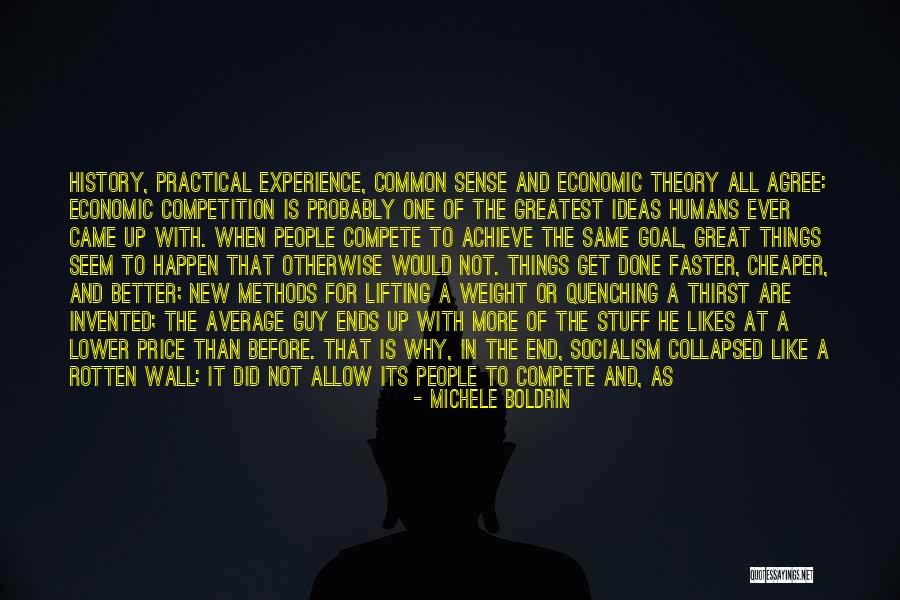Michele Boldrin Quotes & Sayings
Enjoy the top 3 famous quotes, sayings and quotations by Michele Boldrin.
Famous Quotes By Michele Boldrin

History, practical experience, common sense and economic theory all agree: economic competition is probably one of the greatest ideas humans ever came up with. When people compete to achieve the same goal, great things seem to happen that otherwise would not. Things get done faster, cheaper, and better; new methods for lifting a weight or quenching a thirst are invented; the average guy ends up with more of the stuff he likes at a lower price than before. That is why, in the end, socialism collapsed like a rotten wall: it did not allow its people to compete and, as a result, it not only made their economic life miserable, but strangled their hearts and souls. — Michele Boldrin

While there are certainly informational spillovers as ideas move from person to person, it is hard to see why in most instances they are not priced. Although it is possible to imagine examples such as the wheelbarrow where an idea cannot be used without revealing the secret, relatively few ideas are of this type. For copyrightable creations such as books, music, plays, movies and art, unpriced spillovers obviously play little role. A book, a CD or a work of art must be purchased before it can be used, and the creator is free to make use of his creation in the privacy of his home without revealing the secret to the public at large. Similarly with movies or plays. In all cases, the creation must effectively be purchased before the "secret" is revealed. — Michele Boldrin

Although the view that, once discovered, ideas can be imitated for free by anybody is pervasive, it is far from the truth. While it may occasionally be the case that an idea is acquired at no cost - ideas are generally difficult to communicate, and the resources for doing so are limited. It is rather ironic that a group of economists, who are also college professors and earn a substantial living teaching old ideas because their transmission is neither simple nor cheap, would argue otherwise in their scientific work. Most of the times imitation requires effort and, what is more important, imitation requires purchasing either some products or some teaching services from the original innovator, meaning that most spillovers are priced. — Michele Boldrin





